
The Government discussed and commented on 02 draft laws and 06 policy documents for law making. Including: Draft Law amending and supplementing a number of articles of the Lawon Education ; Policy documents on the Law on Personal Income Tax (replacement); Policy documents on the Law on E-commerce...
At the meeting on June 21, 2025, the Government discussed and commented on 02 draft laws and 06 policy documents for law making, including: Draft Law on Civil Judgment Enforcement (replacement); Draft Law on amending and supplementing a number of articles of the Law on Education; Policy documents on the Law on Higher Education (replacement); Policy documents on the Law on Vocational Education (replacement); Policy documents on the Law on Personal Income Tax (replacement); Policy documents on the Law on E-commerce; Policy documents on the Law on Deposit Insurance (replacement); Policy documents on the Law on Vietnam Civil Aviation (replacement).
Promoting decentralization and delegation of power in state management of civil enforcement activities
Regarding the draft Law on Civil Judgment Enforcement (replacement) , the Government assigned the Ministry of Justice to preside over and coordinate with relevant ministries and agencies to study and absorb the opinions of Government members and opinions at the Government Meeting to complete the draft Law according to regulations, ensuring the following requirements: Being consistent with reality, being feasible, overcoming difficulties, obstacles and shortcomings; carefully reviewing and ensuring that the content of the draft Law is consistent and consistent with relevant laws; fully reflecting the policies approved by the Government in the Proposal for Law making; promoting decentralization and delegation of powers in state management of civil judgment enforcement activities, associated with inspection and supervision mechanisms; minimizing administrative procedures; promoting the application of technology and digital transformation in state management and organization of civil judgment enforcement, ensuring publicity and transparency; preventing and combating corruption and negativity in the process of civil judgment enforcement; in accordance with relevant international treaties of which our country is a member.
Complete the draft Law in accordance with the requirements of Resolution No. 66-NQ/TW dated April 30, 2025 of the Politburo on innovation in law-making and enforcement: regulations on human rights, civil rights, and judicial proceedings need to be specific, other contents only regulate framework issues, principles under the authority of the National Assembly, and practical issues that frequently change are assigned to the Government to regulate; study regulations on the allocation of funds from civil judgment enforcement fees and other legal sources of revenue to ensure compliance with the practice of civil judgment enforcement and consistency with the law on the state budget.
Complete regulations on the system of civil enforcement agencies in accordance with the policy of innovation, streamlining the organization of the political system to be streamlined, effective and efficient; continue to closely coordinate with the Supreme People's Court, the Supreme People's Procuracy and agencies of the National Assembly in the process of revising and completing this content.
The Ministry of Justice shall preside over and coordinate with relevant ministries and agencies to urgently study, revise and complete the dossier of the draft Law on Civil Judgment Enforcement (replacement) in accordance with the provisions of the Law on Promulgation of Legal Documents; assign the Minister of Justice, authorized by the Prime Minister, to sign on behalf of the Government to submit to the National Assembly and the National Assembly Standing Committee the draft Law on Civil Judgment Enforcement (replacement) at the 10th Session of the 15th National Assembly.
Promote fundamental and comprehensive innovation in education and training
Regarding the draft Law amending and supplementing a number of articles of the Law on Education, the Government assigned the Ministry of Education and Training to preside over and coordinate with relevant ministries and agencies to review the provisions in the draft Law, focusing on amending inappropriate contents, resolving difficulties, "bottlenecks", and inadequacies that have been pointed out when summarizing and evaluating the implementation of the 2019 Law on Education; supplementing new, necessary, and urgent issues arising in practice to promote fundamental and comprehensive innovation in education and training, and issues that are not really urgent need to continue to be studied and proposed when comprehensively amending the 2019 Law on Education.
Promote administrative procedure reform, decentralization, delegation of power, clearly define the functions, tasks, authority, and responsibilities of each level, agency, organization, and individual in organizing and operating education and training. The Ministry of Education and Training shall preside over and coordinate with relevant ministries and agencies to promptly complete the dossier of the draft Law amending and supplementing a number of articles of the Law on Education in accordance with the provisions of the Law on Promulgation of Legal Documents; report to the Prime Minister before submitting to the National Assembly at the 10th Session of the 15th National Assembly.
Perfecting the legal framework to promote university autonomy
Regarding the Policy Profile of the Law on Higher Education (replacement) , the Government agrees on the necessity of developing the Law on Higher Education (replacement) to fully institutionalize the Party's policies, perfect the legal framework to promote university autonomy associated with accountability, modernize the higher education system and develop high-quality human resources in the context of digital transformation and deep international integration.
The Government assigned the Ministry of Education and Training to preside over and coordinate with relevant ministries and agencies to continue researching and absorbing the opinions of Government members and opinions at the Government Meeting to perfect the policies of the Law on Higher Education (replacement) according to regulations, ensuring the review and inheritance of relevant regulations, eliminating as much as possible unnecessary administrative procedures and processes; removing difficulties and obstacles in the implementation of the Law in the past (such as regulations on the School Council of public higher education institutions...).
Strengthen decentralization, delegation of authority, specify mechanisms to enhance autonomy associated with accountability, increase the effectiveness of quality inspection and supervision, build an academic environment of integrity and creativity in higher education institutions; clearly define the role of higher education institutions in the national innovation system, the mechanism for linking training - research - labor market; improve the quality of higher education institution governance, improve the effectiveness and efficiency of state management of higher education quality, especially in inspection, control, and assurance of input enrollment quality and output quality.
Develop a feasible and synchronous policy implementation mechanism, associated with improving the governance capacity of higher education institutions; develop a digital database of the industry, standardize monitoring and evaluation indicators for quality and performance, as a basis for resource allocation, quality control and promoting healthy competition.
The Ministry of Education and Training shall preside over and coordinate with relevant ministries and agencies to urgently research and complete the policy content according to regulations; on that basis, proactively organize the drafting of the Law project and submit it to the Government at the Special Session on Law-making in July 2025.
Ensure correct, full and timely collection of tax, and equal treatment of all taxpayers.
Regarding the Policy Profile of the Law on Personal Income Tax (replacement) , the Government assigned the Ministry of Finance to preside over and coordinate with relevant ministries and agencies to study and perfect the policies of the Law on Personal Income Tax (replacement) according to regulations, ensuring that the policy contents of the Law on Personal Income Tax (replacement) meet the requirements of improving tax management, collecting correctly, fully, and promptly, ensuring equal treatment among taxpayers.
Research and complete regulations on family deduction levels based on assessing criteria and factors affecting taxpayers' income in accordance with the socio-economic context, taking into account differences between regions and areas.
Review the basis and basis of policy contents regulating tax-exempt and reduced income for various types of subjects (non-refundable aid, embassy staff...), taxable revenue for business individuals, and income from real estate transfers.
The Ministry of Finance shall preside over and coordinate with relevant ministries and agencies to urgently study and complete the policy content; on that basis, proactively organize the drafting of the Law project, and submit it to the Government at the Special Session on Law-making in July 2025. The Minister of Finance, authorized by the Prime Minister, on behalf of the Government, shall sign the Government's Submission proposing that the National Assembly Standing Committee add this Law project to the 2025 Legislative Program, and submit it to the National Assembly for consideration and approval at the 10th Session of the 15th National Assembly.
Strengthening management and tax collection on e-commerce platforms
Regarding the E-Commerce Law Policy Profile , the Government assigned the Ministry of Industry and Trade to preside over and coordinate with relevant ministries and agencies to complete the policies of the E-Commerce Law, ensuring a thorough assessment of the implementation of current legal provisions to ensure that the provisions are consistent with reality, feasible, and overcome shortcomings, limitations, obstacles, and inadequacies; consistent with relevant international treaties to which our country is a member; reviewing the Law policy profile to ensure consistency and synchronization with relevant laws.
Promote decentralization and delegation of power in state management of e-commerce activities; reduce and simplify administrative procedures, promote the application of science and technology, and digital transformation in state management.
Fully institutionalize the Party's guidelines and viewpoints on this field; resolve issues arising from new business models (multi-service applications, livestream sales, etc.), combat unfair competition, protect consumer rights and personal data, strengthen management and tax collection on e-commerce platforms.
Complete regulations to strengthen control of counterfeit goods, banned goods, goods infringing intellectual property rights, poor quality goods, goods of unknown origin; clearly define the tasks, powers and responsibilities of state management agencies and related entities; design tools for inspection, supervision and control of quality and quantity of input and output goods. Study and supplement regulations on e-commerce management in the network environment, including the content of online connection of e-commerce platforms with digital platforms of management agencies for monitoring and post-inspection.
The Ministry of Industry and Trade shall preside over and coordinate with relevant ministries and agencies to urgently study and absorb the opinions of Government members to revise and perfect the policy content to ensure conformity, synchronization, and consistency with the policies stipulated in other relevant Laws; on that basis, proactively organize the drafting of the Law project, and submit it to the Government at the Special Session on Law-making in July 2025.
Minh Hien
Source: https://baochinhphu.vn/nghi-quyet-phien-hop-chuyen-de-xay-dung-phap-luat-thang-6-2025-10225062716234449.htm








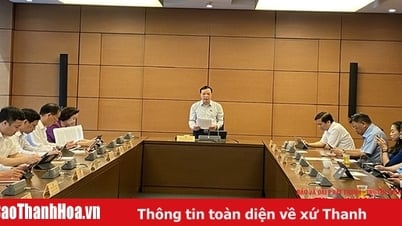

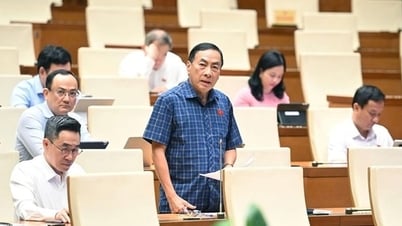

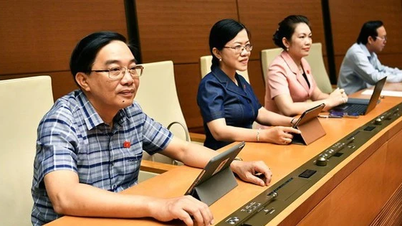


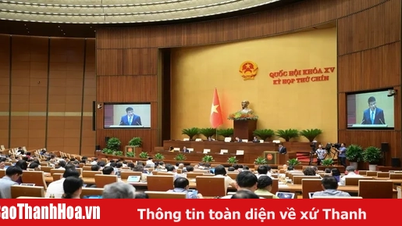






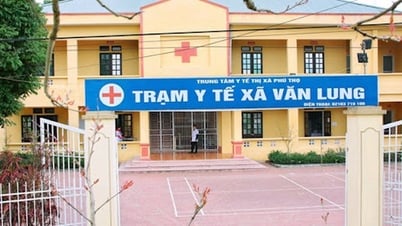







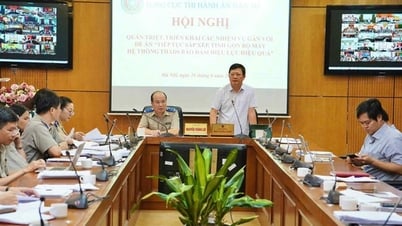




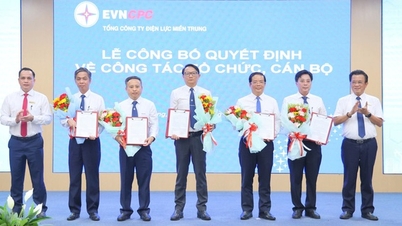



































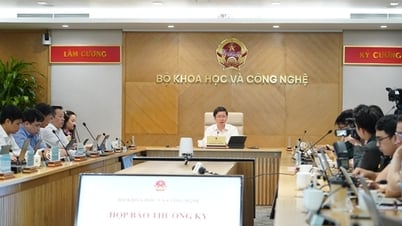

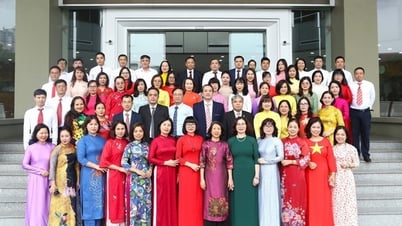

























Comment (0)